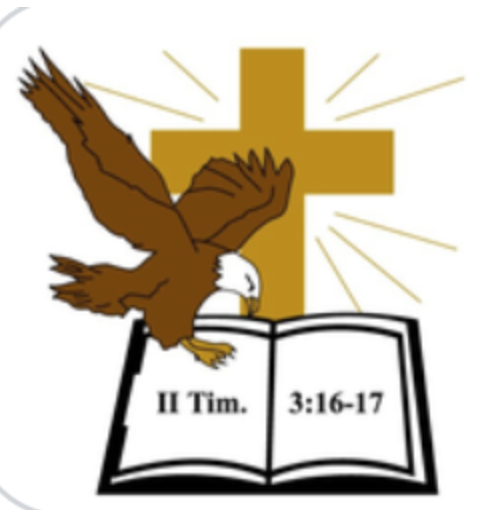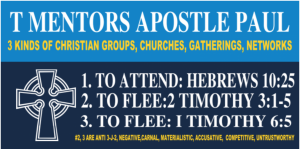
MINISTRY AI AND I
PART 3 A HUMAN BOOK OF MALACHI
The End of a Significant, Magnificent, Mammoth and Rare, Eagle Era
Bible Study Outline
(C)2024 Taveau D’Arcy All copyrights reserved under international copyright laws
Manual Outline: Leadership Study of Malachi
- Introduction: Leadership Responsibility and God’s Covenant
- Overview of Malachi’s message to Israel’s leaders
- The role of the covenant in leadership
- God’s expectations of spiritual leaders
- Objectives of this study
- Chapter Summaries with Leadership Lessons
- Chapter 1: Leadership and the Honor of God’s Name
- Chapter 2: Covenant Faithfulness and Integrity in Leadership
- Chapter 3: Leaders and Justice: The Refiner’s Fire
- Chapter 4: The Day of the Lord: Accountability for Leaders
- Key Concepts for Leadership Development
- The New Covenant and Leadership
- The Importance of the Levitical Example
- Understanding the Day of the Lord as Accountability
- Practical Applications for Modern Leadership
Sample Content: Fill-in-the-Blank Questions for Each Section
Introduction: Leadership Responsibility and God’s Covenant
- Malachi’s message was directed primarily at the _______ and religious leaders of Israel.
(Answer: priests)
- God’s covenant with the priests through _______ was meant to ensure their faithful leadership.
(Answer: Levi)
- According to Malachi, leadership is based on honoring God’s _______ and leading the people in righteousness.
(Answer: name)
Chapter 1: Leadership and the Honor of God’s Name
- Key Verse: “If I be a father, where is mine honor? and if I be a master, where is my fear?” (Malachi 1:6)
- God accuses the priests of dishonoring His _______ by offering polluted sacrifices.
(Answer: name)
- True leadership requires leaders to _______ God’s name by their actions and heart.
(Answer: honor)
- How did the priests show disrespect to God’s name according to Malachi 1?
- They offered _______ sacrifices on the altar (Malachi 1:7).
(Answer: polluted)
- They viewed their service as a _______ rather than an act of worship (Malachi 1:13).
(Answer: burden)
- They offered _______ sacrifices on the altar (Malachi 1:7).
Leadership Application:
- As a leader, in what ways might you be tempted to offer God “less than your best”? Reflect on how this applies to your daily leadership choices.
Chapter 2: Covenant Faithfulness and Integrity in Leadership
- Key Verse: “My covenant was with him of life and peace…for the fear wherewith he feared me, and was afraid before my name.” (Malachi 2:5)
- The priests broke their covenant by failing to teach the _______ and leading people astray.
(Answer: law)
- According to Malachi 2:6, a good leader is someone who walks in _______ and uprightness.
(Answer: truth)
Fill-in-the-Blank Questions:
- The covenant of life and peace was given to _______ and his descendants as a standard of godly leadership.
(Answer: Levi)
- God says that the priests caused many to _______ by their faulty teachings (Malachi 2:8).
(Answer: stumble)
- How can modern leaders break God’s covenant? Name two ways leaders might fail in their responsibilities today:
-
- Leadership Reflection:
-
- Consider your current responsibilities. Are you teaching and leading with integrity, or are there areas where you have allowed compromise?
Chapter 3: Leaders and Justice: The Refiner’s Fire
- Key Verse: “But who may abide the day of his coming? and who shall stand when he appeareth? for he is like a refiner’s fire.” (Malachi 3:2)
- The “refiner’s fire” metaphor shows how God will purify leaders by removing _______ from their hearts and actions.
(Answer: impurities)
Fill-in-the-Blank Questions:
- Malachi 3:3 says that God will sit as a refiner and purifier of _______ to cleanse them so they may offer righteous sacrifices.
(Answer: silver)
- One of the roles of leadership is to _______ the people, ensuring they follow God’s justice and mercy (Malachi 3:5).
(Answer: lead)
- True leadership is about leading with _______ and making just decisions on behalf of those under your care.
(Answer: justice)
Leadership Application:
- Reflect on areas where you need God’s refining fire in your life. How can you lead with greater integrity and justice in your sphere of influence?
Chapter 4: The Day of the Lord: Accountability for Leaders
- Key Verse: “For behold, the day cometh, that shall burn as an oven…and all that do wickedly shall be stubble.” (Malachi 4:1)
- The Day of the Lord is a day of _______ for leaders who have failed in their responsibilities.
(Answer: accountability)
Fill-in-the-Blank Questions:
- Before the Day of the Lord, God promises to send _______ the prophet to turn the hearts of the people back to God (Malachi 4:5-6).
(Answer: Elijah)
- Leaders are held to a higher standard because they are responsible for the _______ of those they lead.
(Answer: spiritual welfare)
Leadership Reflection:
- How can you prepare yourself and those under your care for the accountability of the Day of the Lord? What steps can you take to ensure you are leading faithfully?
Key Concepts for Leadership Development
1. The New Covenant and Leadership
- The New Covenant, established by _______ (Hebrews 8:6), promises forgiveness and transformation, which leaders must embody.
(Answer: Jesus)
2. The Importance of the Levitical Example
- God made a special covenant with _______ (Malachi 2:4-5) as a model for faithful leadership.
(Answer: Levi)
3. The Day of the Lord as Accountability
- Leaders must be mindful of the Day of the Lord, when God will _______ their actions (Malachi 4:1).
(Answer: judge)
Practical Applications for Modern Leadership
-
-
-
- In what ways can you lead others to honor God’s name in your community or organization?How can you embody the covenant principles of life and peace in your leadership
-
-
- Final Reflection
-
- Write down three areas of your leadership that you would like to bring before God for refining, and how you plan to grow in these areas:
- This structure provides a training manual that integrates biblical teachings with leadership applications. The fill-in-the-blank format encourages active participation, while the reflective questions challenge leaders to apply the lessons from Malachi to their modern-day responsibilities. Let me know if you’d like to expand on any of these sections!:
Other Prophets in the Bible
The Bible mentions many prophets who were chosen by God to speak His word to His people, offering guidance, warning, and encouragement. Below are some of the most notable prophets:
- Moses:
- Role: Moses is considered one of the greatest prophets in Israel’s history. He led the Israelites out of Egypt and received the Ten Commandments from God on Mount Sinai. Moses is also the author of the first five books of the Bible (the Torah or Pentateuch).
- Significance: Moses communicated God’s laws and instructions to the people, acted as their mediator, and served as their leader during the Exodus and wilderness journey.
- Samuel:
- Role: Samuel was both a prophet and judge over Israel. He anointed the first two kings of Israel, Saul and David, and guided the nation spiritually.
- Significance: He was instrumental in establishing the monarchy in Israel, and he played a crucial role in the spiritual renewal of the nation.
- Isaiah:
- Role: Isaiah was a prophet in Judah during the reign of four kings. He warned the people of Judah of impending judgment but also offered hope through prophecies of the Messiah.
- Significance: Isaiah’s book is rich with prophecies concerning the coming of the Messiah, Jesus Christ, and is often quoted in the New Testament.
- Jeremiah:
- Role: Known as the “weeping prophet,” Jeremiah prophesied during the final days of Judah before its destruction by Babylon.
- Significance: He warned the people to turn from their sins or face exile and destruction. Despite facing opposition and persecution, Jeremiah remained faithful in delivering God’s message.
- Ezekiel:
- Role: Ezekiel was a prophet during the Babylonian exile. He brought messages of both judgment and hope, including visions of the future restoration of Israel.
- Significance: His visions, such as the valley of dry bones (Ezekiel 37), symbolized the spiritual renewal that God promised to bring to His people.
- Daniel:
- Role: Daniel was a prophet during the Babylonian exile and served in the courts of Nebuchadnezzar and other foreign rulers.
- Significance: His visions and interpretations of dreams, such as the coming of God’s kingdom (Daniel 2, 7), provided insight into the future and the sovereignty of God over all kingdoms.
- Hosea:
- Role: Hosea’s life symbolized God’s enduring love for Israel despite their unfaithfulness. He was commanded by God to marry an unfaithful woman as a reflection of Israel’s relationship with God.
- Significance: Hosea’s message centered on God’s love, judgment, and mercy, calling the people to repentance.
- Amos:
- Role: A prophet to the northern kingdom of Israel, Amos was called from his work as a shepherd and farmer to deliver a message of judgment against the nation’s injustice and idolatry.
- Significance: He emphasized the importance of social justice, warning that religious rituals without righteousness were meaningless to God.
- John the Baptist:
- Role: John is considered the last prophet of the Old Testament era, bridging the gap between the Old and New Testaments. He prepared the way for the coming of Jesus by calling people to repentance.
- Significance: John is often seen as the fulfillment of the prophecy of Elijah’s return (Malachi 4:5-6) and played a pivotal role in announcing the coming of the Messiah.
How Leaders Can Prepare: Lessons from the Prophets
Prophets were not only messengers of God’s word but also examples of how to live in faithfulness and integrity, especially for leaders. Here are key lessons for modern leaders to prepare spiritually and lead effectively:
- Develop a Deep Relationship with God:
- Prophets were able to hear from God because they had a close relationship with Him. Leaders today need to spend time in prayer, worship, and study of Scripture to hear God’s voice clearly.
- Like Moses, who often withdrew to meet with God on the mountain, leaders need regular times of solitude and communion with God.
- Stand Firm in Truth and Integrity:
- Many prophets, such as Jeremiah and Amos, faced opposition for delivering difficult truths, but they remained faithful to God’s message.
- Leaders should prioritize truth and integrity over popularity or comfort. They must have the courage to speak against injustice, corruption, or moral compromise, even when it is unpopular.
- Cultivate Compassion and Empathy:
- Hosea demonstrated God’s enduring love and mercy toward unfaithful Israel. Leaders should reflect this compassionate heart in their dealings with others, showing grace and understanding.
- Leadership is not just about correction but also about healing and restoration of broken relationships, much like how the prophets called people to repentance and renewed fellowship with God.
- Promote Justice and Righteousness:
- Many prophets, especially Isaiah and Amos, emphasized the importance of justice and righteousness in the community. Leaders must actively work toward justice, ensuring fairness, dignity, and respect for all people.
- This means addressing injustice, defending the rights of the vulnerable, and promoting equity in both spiritual and societal matters.
- Prepare Others for the Future:
- Prophets like Daniel and Ezekiel gave visions of the future, helping people prepare for what God was about to do. Leaders today need to be forward-thinking and help prepare their people for future challenges and opportunities.
- This can involve spiritual preparation, such as calling people to repentance and holiness, or practical preparation, such as equipping teams to handle change and growth.
- Be Humble and Obedient:
- Leaders like Moses and John the Baptist displayed great humility, acknowledging that their role was to point people toward God, not themselves. Leaders must remember that they are servants of God and the people, not seeking personal glory.
- Obedience is also crucial. The prophets often delivered hard messages because they were obedient to God’s calling, regardless of the cost. Leaders must be willing to follow God’s will, even when it challenges personal desires or expectations.
- Encourage Repentance and Spiritual Renewal:
- Many prophets, like Joel and John the Baptist, called people to repent and return to God. Leaders today should create environments where spiritual renewal can take place.
- This could involve encouraging people to reflect on their relationship with God, addressing areas of sin, and fostering a culture of revival through teaching, prayer, and worship.
- Lead by Example:
- The prophets often lived out the messages they preached. For example, Hosea’s personal life became a prophetic message, and Jeremiah endured suffering as a symbol of the nation’s coming punishment.
- Leaders should lead by example, living lives of holiness, faithfulness, and service, inspiring those they lead to follow suit.
TAVEAU CREATIVE LEADERSHIP
Conclusion: Preparing as Leaders
In summary, to lead like the prophets, leaders today must focus on cultivating a deep and authentic relationship with God, standing for truth, promoting justice, and leading with compassion. They must also prepare their communities for the future through repentance, spiritual renewal, and humility. Just as the prophets faithfully delivered God’s message and led with integrity, modern leaders are called to be God’s instruments of change and healing in their time
MINISTRY QUESTIONS: write Sister Taveau crossbodyunity@gmail.com
(C)2024 Taveau D’Arcy Creative Leadership All copyrights reserved under international copyright laws in conjunction with AI

